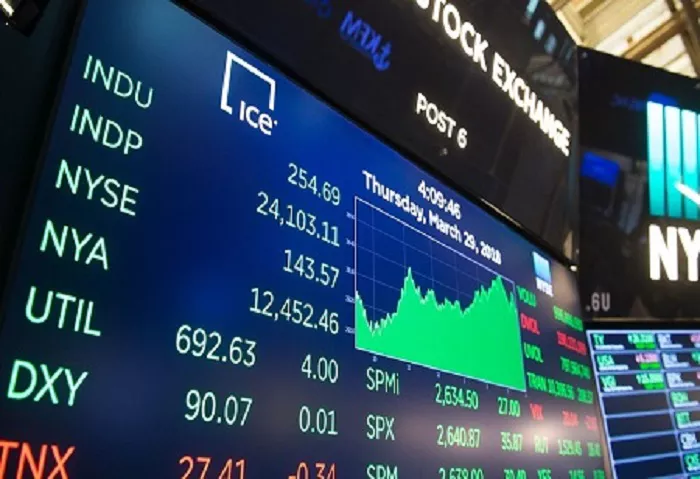U.S. equity futures took a hit following President Donald Trump’s announcement of a 25% tariff on steel and aluminum imports from all countries, including major suppliers like Canada and Mexico. Contracts for both the S&P 500 and Nasdaq 100 dipped, signaling investor retreat from riskier assets. At the same time, the dollar and gold saw gains as investors sought safer investments amid increasing trade uncertainty. Gold even briefly surged above $2,921 per ounce for the first time in response to the move.
Trump’s tariffs, set to take effect on March 4, have sparked concerns over potential retaliatory measures from other nations and further trade escalation. While the president has indicated he may consider an exemption for Australia, the broader impact of these tariffs remains unclear. Markets are reacting cautiously, with some analysts predicting that this trade aggression could lead to a prolonged period of volatility.
As the market adjusts to these new tariffs, investors are also focused on upcoming inflation data and Federal Reserve Chair Jerome Powell’s testimony before Congress. These events could provide crucial insight into the future direction of monetary policy. The New York Fed’s Survey of Consumer Expectations, released Monday, showed inflation expectations unchanged at 3% for the year ahead and three years out.
In the stock market, technology companies continued to perform well despite the broader uncertainty. Nvidia Corp. extended its five-day surge to 15%, and Meta Platforms Inc. continued to climb for the 16th consecutive session. Meanwhile, U.S. steel producers like United States Steel Corp. and Alcoa Corp. saw positive movement in response to the metal tariffs.
Hedge funds also emerged as major buyers of U.S. stocks last week, marking a shift away from their previously bearish stance. Stronger-than-expected earnings reports fueled this renewed interest, especially in the information technology sector. According to Goldman Sachs, hedge funds recorded their highest net buying of single stocks in over three years.
Despite the strong performance in tech stocks, analysts warn that the tariff measures could escalate further, which may trigger more significant pullbacks in equities. Strategists at Deutsche Bank suggest that while tariffs often cause short-term selloffs, equities tend to recover in the medium term, with pullbacks typically lasting around three weeks.
Given the ongoing uncertainty around tariffs and trade policy, Christian Floro from Principal Asset Management highlights the importance of diversification. He advises investors to balance risk by spreading investments across different sectors and regions, as markets adjust to the evolving global trade landscape.
In summary, while stocks have shown resilience in the face of these new tariffs, the potential for further trade escalations looms. Investors are advised to stay cautious, keep an eye on inflation and policy developments, and maintain diversified portfolios to manage risk.
Related topics:
Japan and U.S. Agree to Leave Currency Matters to Finance Ministers
Bitcoin Faces Pressure as Safe-Haven Assets Shine Amid Geopolitical Instability
Island Technology Inc. Raises Funds at $4.5 Billion Valuation Amid Cybersecurity Growth


